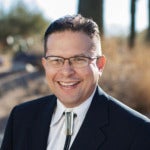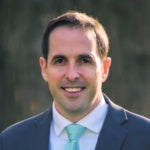Download the Event Presentation: ROADS Infrastructure Event Presentation
Speaker Resources
American Society of Civil Engineers Resources
2021 Report Card for America’s Infrastructure
Event Description
Water, roads, bridges, broadband, affordable housing – these pieces of physical infrastructure are all critical to fostering prosperous rural communities with a good quality of life. Physical infrastructure is an interconnected, intrinsic component of strong communities, yet the different aspects of rural infrastructure are often discussed in separate spaces. The sad reality is that many rural regions and Native nations across the US face crumbling or nonexistent infrastructure, caused by deferred maintenance as well as a lack of equitable investment, access to capital, or strong government relationships. Over time, the underinvestment in rural infrastructure has led to inequitable outcomes – and in the absence of quality infrastructure, some rural and tribal communities face challenges in accessing basic needs like clean drinking water and safe housing, which limits their ability to improve health outcomes or grow their economy.This Rural Opportunity and Development Session to explored why new federal funding presents a momentous opportunity to invest in rural physical infrastructure—watch the recording to hear strategies on how communities can effectively leverage this funding to build thriving rural places. How are water and wastewater systems, broadband, housing, roads and bridges interconnected, and how can these different components of physical infrastructure support sustainable and equitable community and economic development? What unique obstacles do Native nations face when building or rebuilding infrastructure because of historical disinvestment? Learn about the infrastructure challenges rural regions and Native nations are facing and discover promising strategies to pave the way forward.
Our Speakers
 Alexander Brandon, Environmental Services Area Director, Communities Unlimited
Alexander Brandon, Environmental Services Area Director, Communities Unlimited
Alexander has served as the Area Director for Communities Unlimited in Mississippi, Alabama, and Tennessee for 16 years. With his team, Alexander provides assistance to small rural and municipal water and wastewater systems across these three states. Their work focuses on improving the overall capacity and management of water systems and the communities they serve. The goal of Alexander’s technical assistance support is to build sustainable and economically viable water systems, so he also fosters community and economic development while working on a region’s water system. Prior to joining Communities Unlimited, Alexander worked in water treatment as an operator at an iron and manganese removal plant in Columbus, Mississippi. Following that position, he worked as a Technical Assistance Provider (TAP) with the Community Resource Group and as a Site Manager for Nalco Chemical Corporation.

Dave Castillo, Chief Executive Officer, Native Community Capital
Native Community Capital is a Department of Treasury certified, Native Community Development Financial Institution (CDFI). NCC maintains offices in New Mexico and Arizona. In addition to overseeing day-to-day operations, Dave’s primary role is to maintain and develop strategic partnerships with banks and public-sector agencies, as well as with CDFI and foundation partners to raise public- and private-sector capital to provide housing, community- and economic development financing on tribal lands. He is active in developing technical assistance services that build the capacity of tribal professionals in the use of debt financing for housing- and community development projects. He also supports the development of Native-led small business incubators to similarly build capacity of Native entrepreneurs. Dave’s professional contributions to tribal community and economic development began in 1997 through work first with the Inter Tribal Council of Arizona, Inc., later in tribal government and financial institution settings, and since 2009, in the CDFI industry. He currently serves on the Board of Directors for New Mexico Community Capital and the Housing Assistance Council.
 Brigid Darbut, Consultant and Project Manager, Municipal Authority of the Borough of Midland
Brigid Darbut, Consultant and Project Manager, Municipal Authority of the Borough of Midland
Brigid is a lifelong resident of Beaver County, PA, where she identifies and recommends infrastructure improvements to the Board and operators of the municipal authority’s water and wastewater plants. She works tirelessly on grants and bond issues and has also searched for ways to increase the customer base and make improvements in business operations. Midland is a steel town that, like every other steel town, has endured difficult times. Her early work experience was in the non-profit sector for various organizations, including the Old Economy Museum, Ambridge and the Ambridge Chamber of Commerce, and she served as the Director of the Beaver County Tourist Promotion Agency. Brigid also promoted and organized local airshows alongside Beaver County Commissioner Dan Donatella, who was a native of Midland, Pennsylvania and a member of the Beaver County Airport Authority.
Context Presentation
Emily Feenstra, Managing Director of Government Relations and Infrastructure Initiatives, American Society of Civil Engineers
The American Society of Civil Engineers (ASCE) represents more than 150,000 civil engineers worldwide and is America’s oldest national engineering society. Prior to her current role, Emily was the Director of Infrastructure Initiatives and Public Affairs. Before her tenure at ASCE, she was the Deputy Director of the U.S. Water Alliance, where she led policy initiatives and strategic partnerships. Her work in infrastructure began as a public affairs consultant for the Washington State Department of Transportation in Seattle, Washington, where she worked on the Alaskan Way Viaduct project. Her additional transportation experience includes work with the Washington State Transportation Center and as Director of Communications for the Intelligent Transportation Society of America. Feenstra oversees ASCE government relations, including federal and state legislative affairs, regulatory affairs, grassroots, and policy development in addition to media relations.
Our Moderator
 Nathan Ohle, CEO, Rural Community Assistance Partnership
Nathan Ohle, CEO, Rural Community Assistance Partnership
Nathan currently serves as the Chief Executive Officer (CEO) of the Rural Community Assistance Partnership (RCAP), a national network of non-profits focused on access to water, economic development, and capacity building for rural communities across the country. RCAP’s work in assisting some of the smallest rural communities in the US helps to build capacity and opportunity in every state across the country. Nathan was previously the Senior Advisor at the US Economic Development Administration (EDA) and has also served on the White House Rural Council, leading the engagement in place-based initiatives across the Department of Commerce. Nathan was recently selected as one of 40 Under 40 Rising Stars in economic development internationally.
About the ROAD Sessions and Organizing Partners
The ROAD Sessions highlight and unpack rural development ideas and strategies that are critical in response to COVID-19 and to long-term rebuilding and recovery. ROAD Sessions feature stories of on-the-ground practitioners who have experience, wisdom and savvy to share. The series reflects and emphasizes the full diversity of rural America, spotlights rural America’s assets and challenges, and lifts voices and lived experience from a wide range of rural communities and economies. Each Session includes an added opportunity for peer exchange. Overall, the ROAD Sessions aim to infuse practitioner stories and lessons into rural narratives, policymaking and practice across the country, and to strengthen the network of organizations serving rural communities and regions.
The ROAD Sessions virtual exchanges are co-designed and hosted by Thrive Rural – an effort of the Aspen Institute Community Strategies Group with support from the Robert Wood Johnson Foundation – in collaboration with the Housing Assistance Council, the Rural Community Assistance Partnership, Rural LISC, and the Federal Reserve Board.
Download the Event Presentation: ROADS Infrastructure Event Presentation
Speaker Resources
American Society of Civil Engineers Resources
2021 Report Card for America’s Infrastructure
Event Description
Water, roads, bridges, broadband, affordable housing – these pieces of physical infrastructure are all critical to fostering prosperous rural communities with a good quality of life. Physical infrastructure is an interconnected, intrinsic component of strong communities, yet the different aspects of rural infrastructure are often discussed in separate spaces. The sad reality is that many rural regions and Native nations across the US face crumbling or nonexistent infrastructure, caused by deferred maintenance as well as a lack of equitable investment, access to capital, or strong government relationships. Over time, the underinvestment in rural infrastructure has led to inequitable outcomes – and in the absence of quality infrastructure, some rural and tribal communities face challenges in accessing basic needs like clean drinking water and safe housing, which limits their ability to improve health outcomes or grow their economy.This Rural Opportunity and Development Session to explored why new federal funding presents a momentous opportunity to invest in rural physical infrastructure—watch the recording to hear strategies on how communities can effectively leverage this funding to build thriving rural places. How are water and wastewater systems, broadband, housing, roads and bridges interconnected, and how can these different components of physical infrastructure support sustainable and equitable community and economic development? What unique obstacles do Native nations face when building or rebuilding infrastructure because of historical disinvestment? Learn about the infrastructure challenges rural regions and Native nations are facing and discover promising strategies to pave the way forward.
Our Speakers
 Alexander Brandon, Environmental Services Area Director, Communities Unlimited
Alexander Brandon, Environmental Services Area Director, Communities Unlimited
Alexander has served as the Area Director for Communities Unlimited in Mississippi, Alabama, and Tennessee for 16 years. With his team, Alexander provides assistance to small rural and municipal water and wastewater systems across these three states. Their work focuses on improving the overall capacity and management of water systems and the communities they serve. The goal of Alexander’s technical assistance support is to build sustainable and economically viable water systems, so he also fosters community and economic development while working on a region’s water system. Prior to joining Communities Unlimited, Alexander worked in water treatment as an operator at an iron and manganese removal plant in Columbus, Mississippi. Following that position, he worked as a Technical Assistance Provider (TAP) with the Community Resource Group and as a Site Manager for Nalco Chemical Corporation.

Dave Castillo, Chief Executive Officer, Native Community Capital
Native Community Capital is a Department of Treasury certified, Native Community Development Financial Institution (CDFI). NCC maintains offices in New Mexico and Arizona. In addition to overseeing day-to-day operations, Dave’s primary role is to maintain and develop strategic partnerships with banks and public-sector agencies, as well as with CDFI and foundation partners to raise public- and private-sector capital to provide housing, community- and economic development financing on tribal lands. He is active in developing technical assistance services that build the capacity of tribal professionals in the use of debt financing for housing- and community development projects. He also supports the development of Native-led small business incubators to similarly build capacity of Native entrepreneurs. Dave’s professional contributions to tribal community and economic development began in 1997 through work first with the Inter Tribal Council of Arizona, Inc., later in tribal government and financial institution settings, and since 2009, in the CDFI industry. He currently serves on the Board of Directors for New Mexico Community Capital and the Housing Assistance Council.
 Brigid Darbut, Consultant and Project Manager, Municipal Authority of the Borough of Midland
Brigid Darbut, Consultant and Project Manager, Municipal Authority of the Borough of Midland
Brigid is a lifelong resident of Beaver County, PA, where she identifies and recommends infrastructure improvements to the Board and operators of the municipal authority’s water and wastewater plants. She works tirelessly on grants and bond issues and has also searched for ways to increase the customer base and make improvements in business operations. Midland is a steel town that, like every other steel town, has endured difficult times. Her early work experience was in the non-profit sector for various organizations, including the Old Economy Museum, Ambridge and the Ambridge Chamber of Commerce, and she served as the Director of the Beaver County Tourist Promotion Agency. Brigid also promoted and organized local airshows alongside Beaver County Commissioner Dan Donatella, who was a native of Midland, Pennsylvania and a member of the Beaver County Airport Authority.
Context Presentation
Emily Feenstra, Managing Director of Government Relations and Infrastructure Initiatives, American Society of Civil Engineers
The American Society of Civil Engineers (ASCE) represents more than 150,000 civil engineers worldwide and is America’s oldest national engineering society. Prior to her current role, Emily was the Director of Infrastructure Initiatives and Public Affairs. Before her tenure at ASCE, she was the Deputy Director of the U.S. Water Alliance, where she led policy initiatives and strategic partnerships. Her work in infrastructure began as a public affairs consultant for the Washington State Department of Transportation in Seattle, Washington, where she worked on the Alaskan Way Viaduct project. Her additional transportation experience includes work with the Washington State Transportation Center and as Director of Communications for the Intelligent Transportation Society of America. Feenstra oversees ASCE government relations, including federal and state legislative affairs, regulatory affairs, grassroots, and policy development in addition to media relations.
Our Moderator
 Nathan Ohle, CEO, Rural Community Assistance Partnership
Nathan Ohle, CEO, Rural Community Assistance Partnership
Nathan currently serves as the Chief Executive Officer (CEO) of the Rural Community Assistance Partnership (RCAP), a national network of non-profits focused on access to water, economic development, and capacity building for rural communities across the country. RCAP’s work in assisting some of the smallest rural communities in the US helps to build capacity and opportunity in every state across the country. Nathan was previously the Senior Advisor at the US Economic Development Administration (EDA) and has also served on the White House Rural Council, leading the engagement in place-based initiatives across the Department of Commerce. Nathan was recently selected as one of 40 Under 40 Rising Stars in economic development internationally.
About the ROAD Sessions and Organizing Partners
The ROAD Sessions highlight and unpack rural development ideas and strategies that are critical in response to COVID-19 and to long-term rebuilding and recovery. ROAD Sessions feature stories of on-the-ground practitioners who have experience, wisdom and savvy to share. The series reflects and emphasizes the full diversity of rural America, spotlights rural America’s assets and challenges, and lifts voices and lived experience from a wide range of rural communities and economies. Each Session includes an added opportunity for peer exchange. Overall, the ROAD Sessions aim to infuse practitioner stories and lessons into rural narratives, policymaking and practice across the country, and to strengthen the network of organizations serving rural communities and regions.
The ROAD Sessions virtual exchanges are co-designed and hosted by Thrive Rural – an effort of the Aspen Institute Community Strategies Group with support from the Robert Wood Johnson Foundation – in collaboration with the Housing Assistance Council, the Rural Community Assistance Partnership, Rural LISC, and the Federal Reserve Board.









